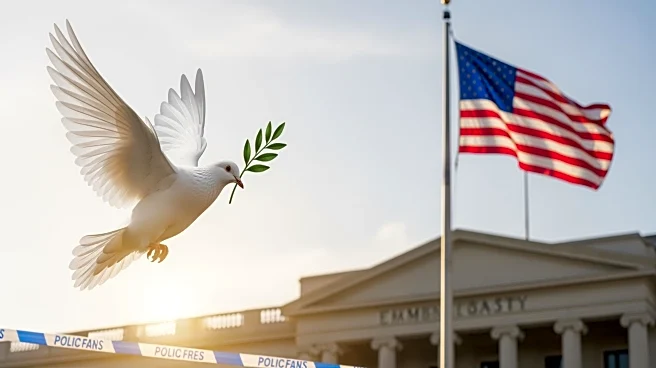What's Happening?
Ruby Chen, the father of Staff-Sgt. Itay Chen, made a public appeal for the release of his son from Hamas captivity in Gaza. The plea took place outside the US Embassy Branch Office in Tel Aviv. Itay Chen's
body was recently returned home, marking a poignant moment for his family and supporters. The situation highlights ongoing tensions and humanitarian concerns related to hostages held in conflict zones.
Why It's Important?
The return of Itay Chen's body underscores the complex geopolitical and humanitarian issues surrounding hostages in Gaza. This event draws attention to the broader implications of hostage situations in international conflicts, affecting diplomatic relations and public sentiment. Families of hostages often face prolonged uncertainty and emotional distress, which can influence public opinion and policy decisions regarding conflict resolution and humanitarian aid.
What's Next?
The return of Itay Chen's body may prompt further diplomatic efforts to address hostage situations in Gaza. Stakeholders, including governments and international organizations, might increase pressure on Hamas for the release of remaining hostages. This could lead to negotiations or interventions aimed at resolving such humanitarian crises. The situation may also influence future policy decisions regarding conflict management and peacekeeping efforts in the region.
Beyond the Headlines
The ethical and legal dimensions of hostage situations in conflict zones are significant. The plight of hostages raises questions about international law, human rights, and the responsibilities of governments and non-state actors. Long-term shifts in diplomatic strategies and humanitarian policies may be triggered by such events, influencing how similar situations are handled globally.








